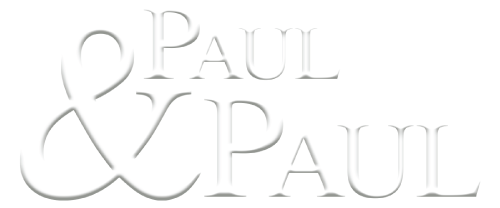Biotechnology as a field is rapidly advancing. These advances have the ability to shape the future. The Delaware Valley, encompassing Pennsylvania, Delaware, and New Jersey is no exception. Innovation is thriving in the Delaware Valley.
As an inventor, you’ve probably dedicated a considerable amount of time and energy to creating an innovative biotechnology invention, and the next step is figuring out how to protect your invention. How do you protect an idea – something that can’t be kept in a bank or a safe? That’s where patents come into play. They are a mechanism allowing you to claim your invention as your property.
What is a Patent?
A patent is a way to legally protect your intangible invention, establishing it as your property. Owning an idea or a process may seem counter-intuitive, as there’s nothing to physically hold, let alone own. However, there is a whole class of assets referred to as intangible property, which is non-monetary property that isn’t physical but has financial value.
Patents, however, aren’t indefinite. They last, most often, for twenty years from the application’s filing date (not the date the application was approved). In the United States, there are three types of patents: utility, design, and plant. Biotechnological innovations will almost always fall under the classification of utility or plant.
The Patent Process
The patent process consists of five main steps:
- Prior Art Search Establishing Novelty. A patent can only be granted if the idea is completely new, which is referred to as being novel in the patent world. A prior art search must be conducted. A prior art search involves searching (or hiring an agency to search) for existing and prior patents which are similar to your invention. You must then show how your invention is novel and how it is different from all the other patents on the market. This step is not only for the application but for your own peace of mind as if there are issues with novelties, you then have a chance to alter your invention so it is sufficiently novel.
- Preparing and Filing a Patent Application. A well-drafted patent application meeting the United States Patent and Trademark Office (USPTO)’s strict requirements is the most critical component of the patent process. You can also file a provisional patent application, which grants you a one-year window to develop your innovation further and file the official patent application.
- Examination. Once you’ve filed your official patent application, the USPTO examiners will review the application to ensure it meets all the requirements set forth and is sufficiently novel.
- Publication. Most patent applications will be published around 18 months after they’ve been filed. This is when your innovation’s details become available to the public under your name.
- Granting the Patent. If your invention and application meet the USPTO’s requirements, they will grant your patent, and your innovation will officially become your property.
The Importance of an Experienced Patent Attorney
Patent law is incredibly nuanced. Applying for a patent is a lengthy, multi-step process with many rules and dozens of specifications. There are even rules regarding the application’s page margins. It’s easy to make a mistake when filing for a patent without the help of an attorney, which can make the process of making your invention your property considerably longer and could even get your patent denied altogether. An experienced and skilled patent attorney can ensure that you don’t lose your novel idea to a technicality.
Protect Your Biotechnology Innovation: An Experienced Biotechnology Patent Legal Team
You may feel like you’ve already done the hard work by inventing something completely new or making critical updates in the field of biotechnology. However, the process of securing a patent is incredibly lengthy and technical. Don’t take on the process on your own. With the assistance of an experienced Philadelphia biotechnology patent attorney, the inane requirements and technical jargon become easy to navigate.
Paul & Paul have dedicated an entire practice to protecting people’s intellectual property. Backed by years of experience, our team has strong academic credentials enabling us to truly understand the patents we are helping biotechnological innovators protect. We proudly serve clients across the Delaware Valley and beyond. Contact us today for a free case evaluation, or call us at (215) 568-4900. The sooner you reach out, the sooner we can help you protect your biotechnological innovation.
